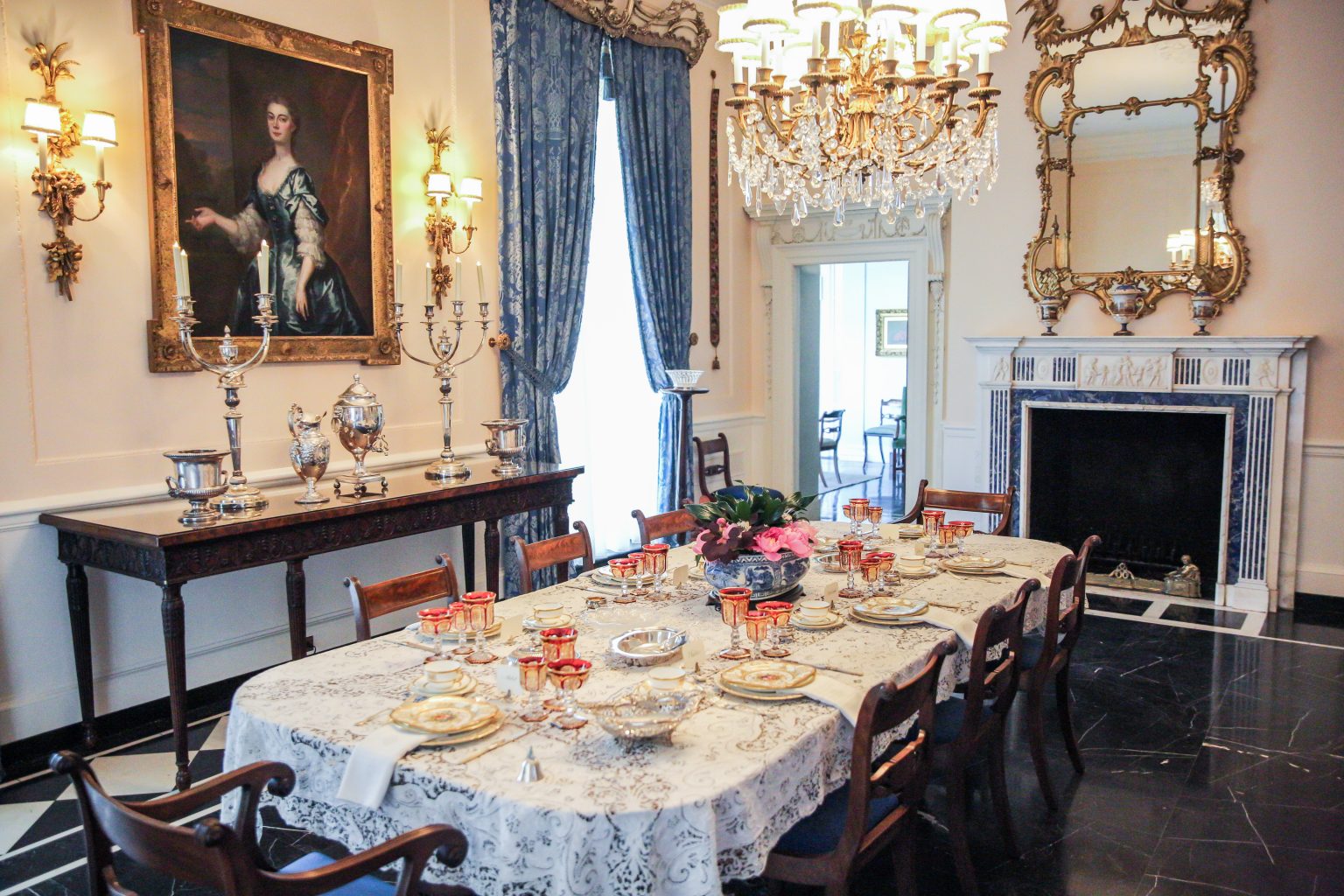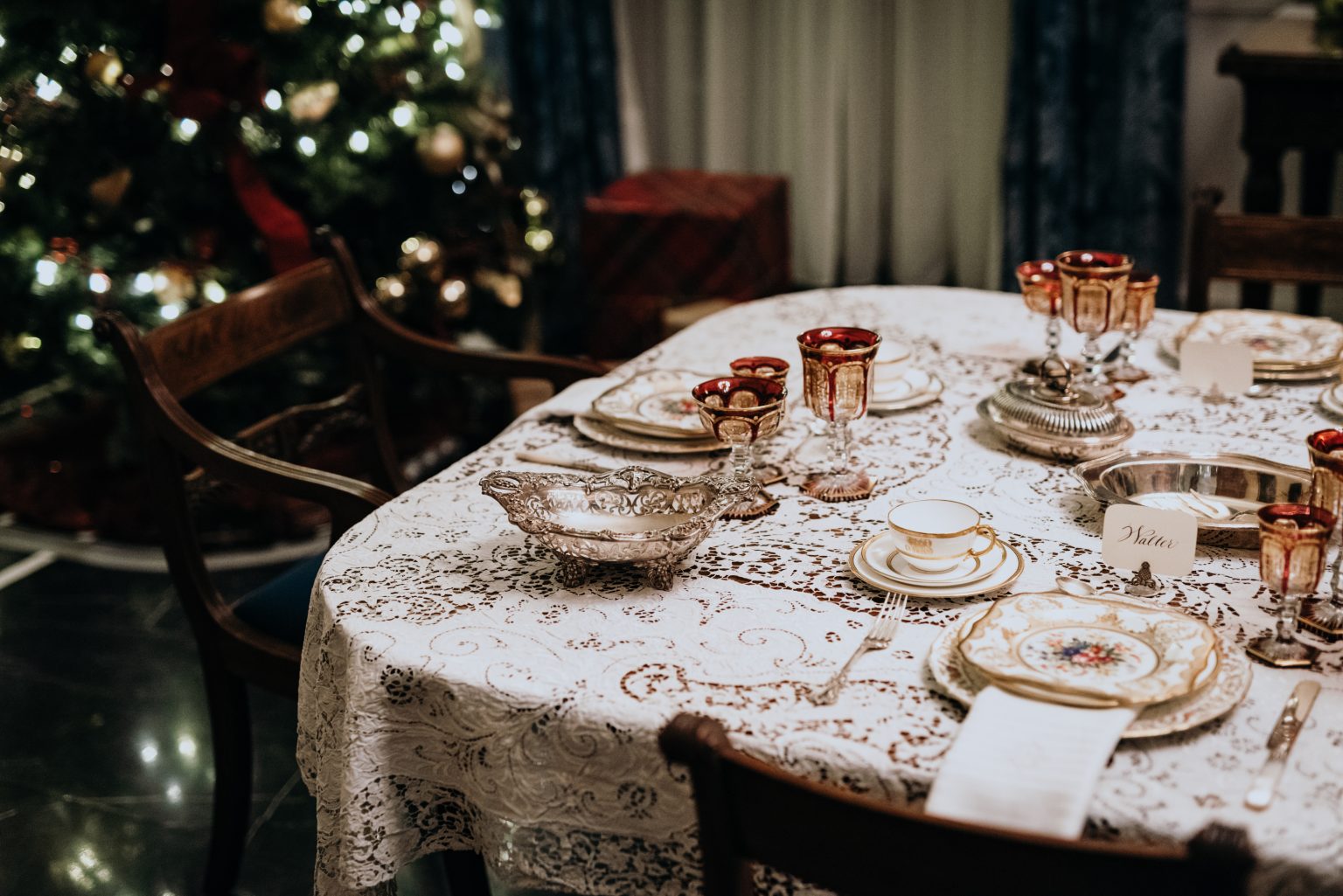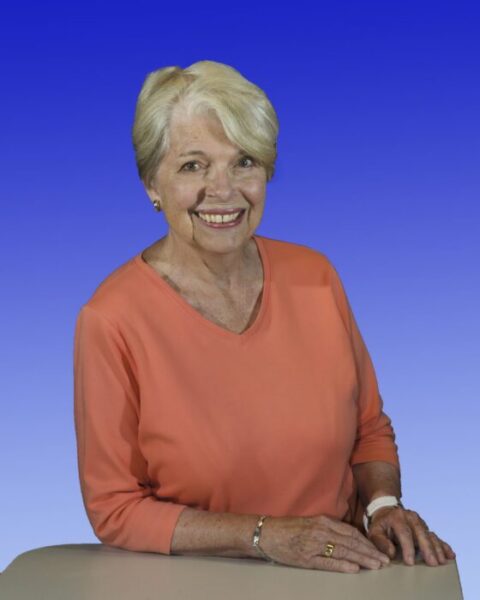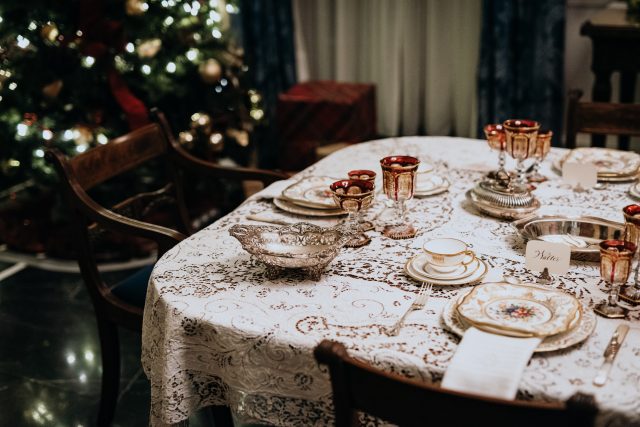“Thanksgiving becomes the American holiday that embraces all that we value.”
James W. Baker, Thanksgiving: The Biography of an American Holiday
Season of mists and mellow fruitfulness,
Close bosom-friend of the maturing sun,
Conspiring with him how to load and bless
With fruit the vines that round the thatch-eves run;
To bend with apples the moss’d cottage-trees,
And fill all fruit with ripeness to the core….
John Keats, from To Autumn
Family traditions merged with timely customs when Nashville prepared for the annual Thanksgiving holiday on the third Thursday of November. Early in the autumn, questions of whose turn it was to host Thanksgiving this year were settled, and guests invited to Cheekwood would understand that preparations fell mainly to Mabel Cheek as the lady of the house. From childhood in her Clarksville, Tennessee home, Mabel doubtless had observed and participated in the holiday planning. As the mistress of Cheekwood, she would monitor the sumptuous feast at each point of preparation, just as she saw to it that every room sparkled, as did the china, silver, and her favorite ruby-red glassware, with the pristine linens crisp from the flatiron and the table arrangements at the standard of the preeminent country estate. (The guests need not know that Mabel reported on extensive “housekeeping” in a pre-Thanksgiving letter to her daughter, Huldah, who was away at college. “My fifth week with the same general cleaner,” Mabel wrote, also mentioning a seasonal dinner party that anticipated Thanksgiving in the dining room: “The table was beautiful in autumn flowers and fruits.”)

By the early 1930s when Leslie and Mabel Cheek moved into Cheekwood, few recalled that a “Day of Thanksgiving and Praise” was proclaimed in 1863 by President Abraham Lincoln. The sixteenth US President was esteemed in the northern states that embraced the first Thanksgiving of Pilgrims and Native Americans sharing a meal in social harmony in the Plymouth Colony on the shores of Cape Cod, Massachusetts in 1621. The South, however, took a different view of the inaugural Thanksgiving holiday. A similar feast had occurred two years earlier in 1619 at the Berkeley Plantation in Virginia, and the president of William & Mary College, Lyon G. Tyler, fervently advocated for the South’s preeminence in Thanksgiving.
The Cheeks did not enter into the “First Thanksgiving” debate, but perhaps Mabel realized that volumes purchased for the Cheekwood library linked directly to the development of the national holiday. For $125.00, the Cheeks acquired Godey’s Ladies Books, 1854-1858, thus furnishing their shelves with bound volumes of magazines produced by Sarah Josepha Hale, the editor-in-chief of the first major US magazine for women, Godey’s Ladies Book. According to historian James W. Baker, the widowed Mrs. Hale “began her advocacy of Thanksgiving in 1837” and in the following decades became the “godmother” of Thanksgiving for her campaign to have “the last Thursday in November declared Thanksgiving in every state and Territory.” Apart from Mrs. Hale’s letters to Lincoln promoting the holiday, no direct evidence exists to link the magazine to the President’s proclamation, but her campaign is widely credited as foundational for the creation of the national holiday.

The exact recipes for Thanksgiving fare at Cheekwood may not be fully known. Perhaps Mabel had attended the Centennial Club program, Thanksgiving Menu—demonstration and recipes,” on November 8, 1927. And possibly the Cheekwood kitchen held a copy of Housekeeping in Old Virginia (1879), principally a cookbook of recipes contributed by ladies throughout the South, including seven recipes for roast turkey.
When the Cheekwood mahogany dining room table was extended to accommodate all guests, rain or shine, on the third Thursday of November, a prayerful thanks was given for a holiday said to be unique to the United States of America.
Blog post provided by Cheekwood’s Writer-in-Residence, Cecelia Tichi, Ph.D.
Cecelia Tichi is an award-winning author and Professor of English and American Studies Emerita at Vanderbilt University. Her books span American literature and culture from colonial days to modern times, but her recent work draws upon the Gilded Age (post-1870) that prompted her book on Jack London and another on seven activists in that tumultuous era.
Cecelia’s research and teaching inspired What Would Mrs. Astor Do? The Essential Guide to the Manners and Mores of the Gilded Age, followed by Gilded Age Cocktails and Jazz Age Cocktails , which set the stage for her mystery crime novels that boast “Gilded” in each title.
Cecelia can be followed on her website: https://cecebooks.com/

